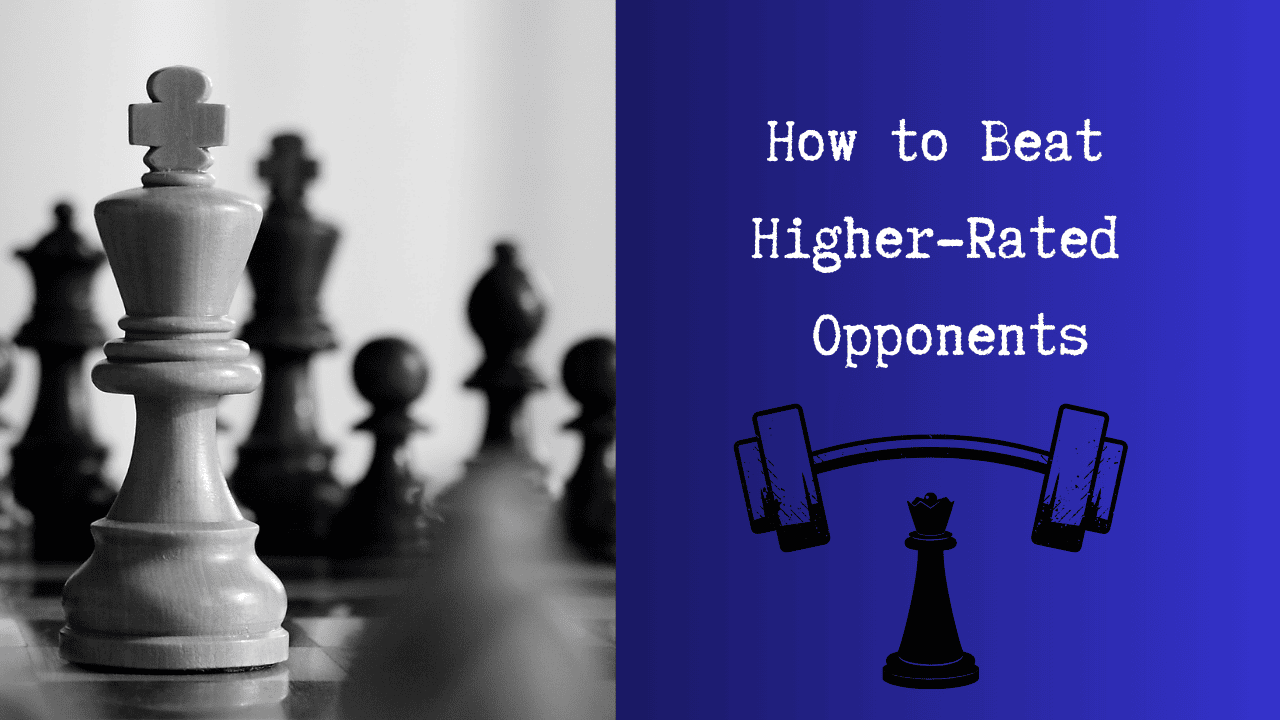
How to Beat Higher-Rated Opponents
From time to time, you may find yourself facing an opponent with a significantly higher rating. What strategy should you adopt? Is there an option other than simply accepting that you will lose quickly?
The truth is that it is possible to increase your chances of achieving a good result, but you must strictly follow a few key principles. Of course, there is no guarantee, but this is the best you can do.
First of all, understand that your opponent likely has a much higher rating because they excel in most of the key areas: openings, planning, tactics, calculation, and endgames. However, if you shape the battlefield correctly, you still have a chance.
"All men can see the tactics whereby I conquer, but what none can see is the strategy out of which victory is evolved." – Sun Tzu, The Art of War
This quote highlights the importance of preparation, positioning, and strategy—shaping the battlefield—over mere tactics.
What Not to Do
Before I tell you what to do, here is one thing you must not do:
- Do not engage in an open fight. Your chances of outplaying someone who is superior in almost all aspects of the game are close to zero.
What to Do
- Set up a solid position without any clear weaknesses. (This is much easier to do with White than with Black.)
- Choose an opening or line that leads to a simple position.
- Follow general principles and develop naturally—do not attempt anything reckless.
- Avoid complications and simplify the position when possible.
- Improve your position with each move, but do not initiate an attack.
- Wait for your opponent’s attack, and once it happens (and it will happen), that is your chance to strike back.
Join my newsletter! Every Friday, get useful chess tips, helpful links, and advice to improve your game and mindset.
BONUS!!! ![]() Sign up now and get a free 10-week chess improvement course! Each week, you'll learn an important skill, like tactics, piece activity, and position evaluation, with clear steps to help you play better.
Sign up now and get a free 10-week chess improvement course! Each week, you'll learn an important skill, like tactics, piece activity, and position evaluation, with clear steps to help you play better.
Don't miss out—subscribe today! ![]()
![]()
Understanding the Higher-Rated Player’s Mindset
Let’s try to think like a stronger player. You probably think in a similar way when playing against weaker opponents:
- I have to win. I will play a good opening and early middlegame, and then wait for my opponent’s mistake.
- However, deep down, stronger players assume they must win—not draw, but win.
If a lower-rated player sets up a simple and solid position, the higher-rated player will often try to create complications, make the position more dynamic, and launch an attack. Many stronger players ignore potential dangers and take risks because they feel the need to push for a win.
A Proven Strategy
That moment—their risky attack—is when they are most vulnerable. They may not expect that you are simply waiting for such an opportunity to strike back. If they do not launch an attack, the game is likely to end in a draw—an outcome that may be unacceptable to them.
Using this strategy has helped me win many games against stronger opponents. Of course, I wasn't always able to set up a solid position, but when I did, my chances increased significantly.
Example Game

This is a position I played against GM Bartłomiej Heberla in 2007. I was Black, and for 33 moves,
I tried to use this strategy: I played a solid opening and attempted to exchange pieces.
However, I cannot say that 100% of my plan worked—White was able to create some threats that I had to neutralize, and the position remained quite dynamic. But at this moment, my opponent became frustrated that his attack was not yielding results and decided to go for a risky line:
34. Rb7
That was exactly the move I was waiting for. White could have played a solid move, such as
34. Nf2, with the idea of Qb7 (after which I planned to play Qe1 to trade queens, following the principle). However, higher-rated opponents usually dislike defensive moves—they want to attack.
34... Kxb7
35. Nc5 Kc7
36. Qb7 Kd6

At this point, my opponent realized there was nothing left. He played:
37. Qd7, and after Kxc5, White resigned.
Final Thoughts
Next time you face a stronger opponent, use this strategy: set up a very solid and simple position and wait for your opponent’s attack. If you execute this correctly, you have a real chance to win.